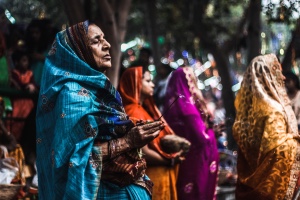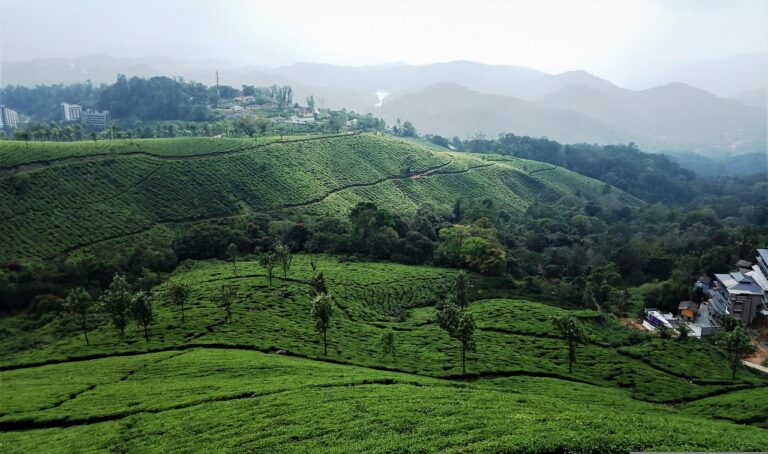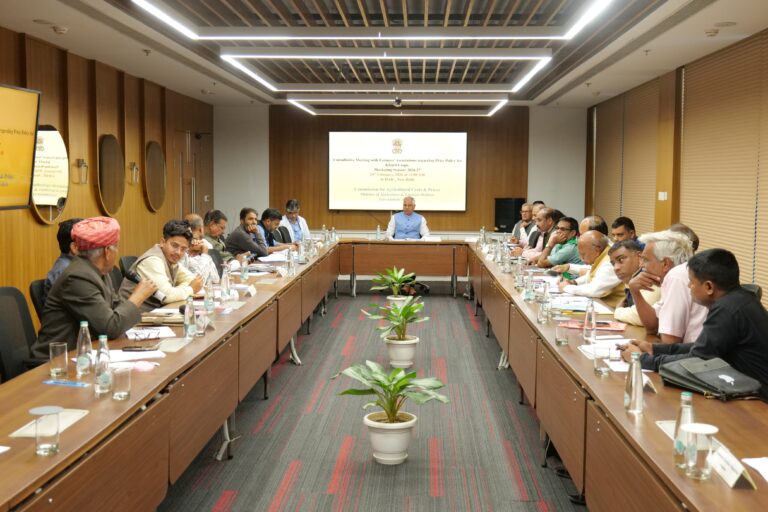
Spirituality

By Swami Viditātmānand Saraswati*
Nitya Karma (Obligatory Duties) and Naimittika Karma (Prescribed Duties)
If someone does not take part in the process of yajña, and does not worry about offering anything to samaṣṭi (the whole universe) or devatās, does he have to lose anything?
In response to that question, Bhagavāna says: तैर्दत्तानप्रदायैभ्यो यो भुंक्ते स्तेन एव सः ॥ । The one who enjoys objects given by devatās without offering to them is indeed a thief. (3-12)
Devatās serve us in all different ways, even then, without surrendering to them if one continues to enjoy the pleasures, he is indeed a thief. Even when he does not appear to be a thief, he is definitely a thief from a spiritual point of view. He may seem very smart and clever in his worldly transactions; however, it is a theft in the field of spirituality. If we keep enjoying everything without giving even a little to the one who has given us a lot, it is called theft. Whatever small or big actions we can perform, if we think about the contribution of īśvara, devatās, the whole universe behind that, we will understand that we are continuously under the obligation of them all. Even when I want to eat only one capātī (flat bread), I have a need for the propitiation of the entire universe! We think that we get the flour from the container, make dough by adding water to it, roll a piece of dough into a capātī, roast it and a capātī gets ready. In reality, it is not as easy to make a capātī and eat it as it is to talk about it. First, wheat grows when a farmer puts in a lot of labour by tolerating cold, heat, rain etc. Then he prepares the grains of wheat grown on the plants and sells them to the merchant. The merchant sells to us. Our container gets filled with the wheat flour when we buy the wheat grains, cleanse them and grind them at the mill. Someone made the container to keep the flour. Someone made a vessel to make the dough, rolling pan, rolling pin, griddle, pair of tongs and also, someone made arrangements for the fuel for the fire and water. Wheat grains became ready when sun, moon, clouds, rain, earth and humans, all of them contributed and then a capātī was rolled and roasted and then I ate that capātī! If oil and natural gas companies go on a strike, then our capātī will disappear and we have to starve. If the delivery of fuel, diesel, petrol etc. stops, all the vehicles will stop without them. We pay money at the petrol pump (gas station) and our vehicle is filled with petrol. However, there is tremendous labour by a lot of people behind the production and distribution of petrol. We can get petrol because so many people would have planned, and spent a lot of time and energy. As though Bhagavāna would have prepared so much to fulfill the needs of the people of the 21st century! Bhagavāna prepared the supply of petrol in Iraq, Iran, Kuwait etc. places so that we all get it. If we think in this way, we understand how much planning Bhagavāna has done for us! And in the present times also, at each moment we are being cared for! The entire world is propitiating. We are in the world, we are part of the world and therefore, it is desirable that we join this universal yajña of propitiation.
Also read: Spiritual Discourse: The spirit of yajña!
Even when we are continuously benefitting from the universal order in the form of the universal yajña, if we do not contribute our share, we will be considered thieves. Earlier it was explained that one is born with many types of obligations. Universal factors have obliged him. Therefore, to pay off the debt by returning the favor, there is a command in Vedic literature for nitya karma and naimittika karma in which there is indeed an attitude of yajña and surrender. Therefore, if one continues to perform his nitya karma and naimittika karma with conviction, his contribution will automatically be given in the universal order.
Five Mahāyajñas
In the form of nitya karma, there are five types of yajña prescribed for a gṛhastha (house holder): brahmayajña, pitṛyajña, devayajña, nṛyajña, and bhūtayajña. Brahmayajña means study of Vedas – here the meaning of brahma is Veda. Everyday one should study the Veda of his own lineage, one should do svādhyāya and conduct discourses. One should put in effort to gain knowledge and also contribute to promote that knowledge. We can pay off the debt of ṛṣis who gave us the inheritance of knowledge by doing brahmayajña in this manner.
Pitṛyajña means the karmas performed for the ancestors such as śrāddha, tarpaṇa etc. Addressing the ancestors living in pitṛloka, by the karmas such as piṅḍadāna, tarpaṇa etc performed by their children provide the ancestors the help to maintain their place in that particular loka. Moreover, pitṛyajña includes the service to the living elders also. To serve the mother, father, grandmother, grandfather and any other elders and old members of the family is also included in pitṛyajña. By this, we can return the favour done by our forefathers and ancestors.
Devayajña means worshiping or serving devatās which was performed in the form of yajña etc. in Vedic times. We should have worship of devatās, īśvara, or our iṣṭadevatā in some form in our life. In this manner we can pay off the debt of devatās.
By donating food to the hungry and clothes, home etc. to the needy, nṛyajña is performed. Our life is sustained by the cooperation of all the categories of people in the society. By performing nṛyajña, debt to all the people is paid off. And, the fifth yajña is bhūtayajña. Insects, animals, birds, trees and vegetation have served us also. Giving grass to cattle and grains to birds, raising and nurturing trees isbhūtayajña by which we are paying off the debt.
In this manner, by the yajña mentioned above, śāstras are telling us to perform our duties toward the world. The entire world is a family. We are a member of that family and therefore, with the attitude of wellbeing of all, we should perform karma. This should be the attitude behind the yajña.
There is also another outlook behind this teaching to do five yajñas in the form of nitya karma. In our day-to-day transactions, we end up incurring some or the other violence. In the Vedic times, human life was very simple. At that time also, five types of violence were mentioned in the life of a gṛhastha. Crushing, grinding, cooking, fetching water and sweeping – violence is part of all these five activities. We become part of the sins due to the violence committed unknowingly in our common daily life. To free ourselves from these sins, we need to do atonement karma. The five yajñas mentioned above are also considered as the atonement of the five types of sins.
*Swami Viditatmananda Saraswati has been teaching Vedānta Prasthānatrayī and Prakaraṇagranthas for last 40 years in Ahmedabad, Gujarat. Throughout the year, he conducts daily Vedānta discourses, accompanied by retreats, and Jñāna Yajñas on Vedānta in different cities in India and in foreign countries.






Very true message to human being